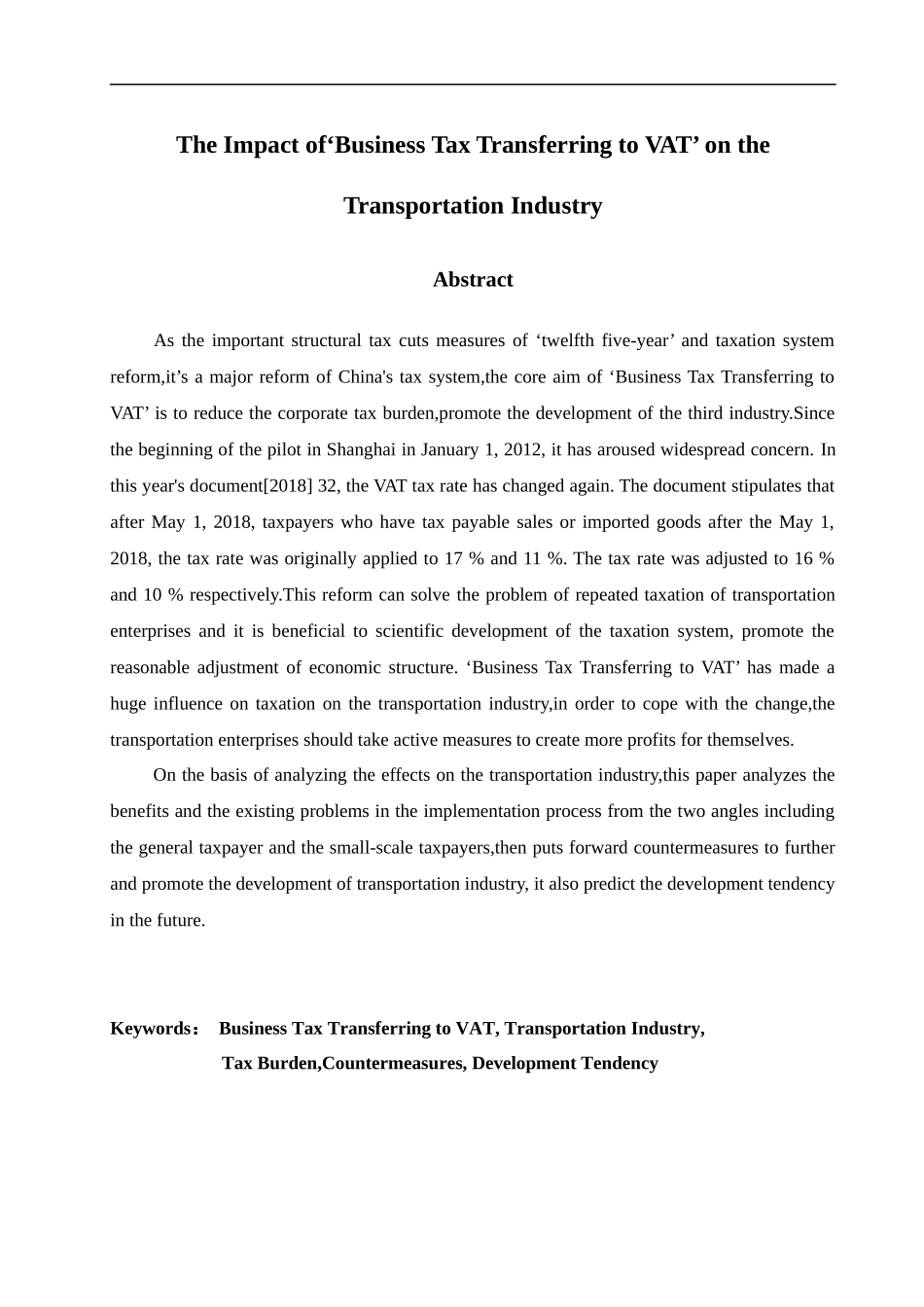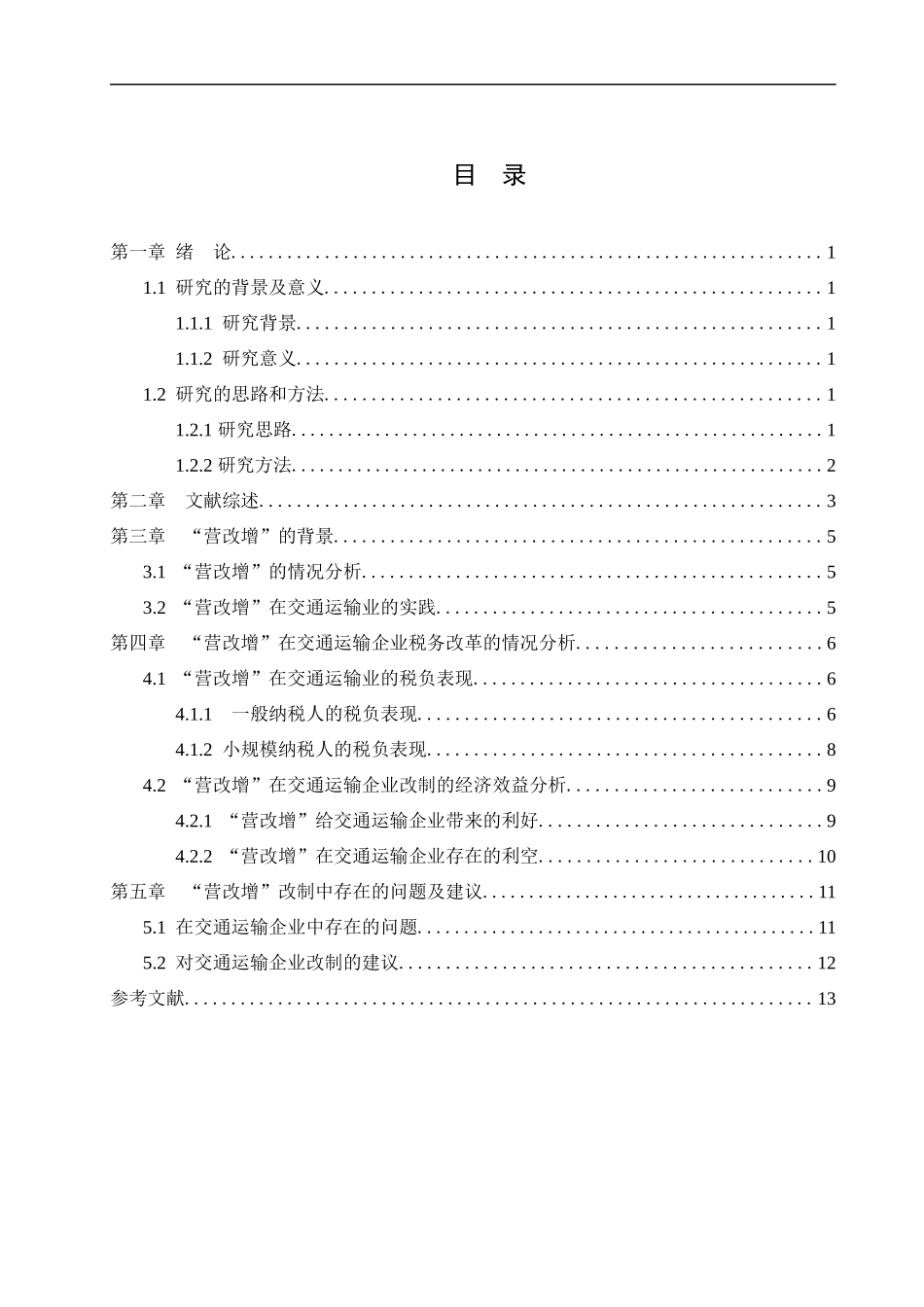浅析“营改增”对交通运输企业的影响摘要 “营改增”作为“十二五”期间财税改革重要的结构性减税措施,是我国税收制度的一次重大改革,其核心目标是降低企业的税负,推进第三产业的发展。自 2012 年 1 月1 日在上海开始试点之后,引起了人们的广泛关注。而在今年财税【2018】32 号文件中增值税税率又发生了变化,文件中规定 2018 年 5 月 1 号之后纳税人发生增值税应税销售行为或者进口货物,原适用 17%和 11%税率的,税率分别调整为 16%、10%。以上改革可以解决交通运输企业重复征税并进一步降低企业物流成本的问题,有利于税收制度的科学发展,并能促进经济结构的合理调整。“营改增”对于交通运输业的税务影响比较大,为了应对这一变化,交通运输企业需积极采取措施来为企业创造更大的利润空间。 本文通过分析营改增对交通运输业的影响,从一般纳税人和小规模纳税人两个角度出发,分析了营改增在交通运输企业中实施的效益和实施过程中存在的问题,提出进一步推进营改增改制和促进交通运输业发展的具体思路和对策,并预测它在未来道路上的发展趋势。关键词: 营改增,交通运输业,税负,对策,发展趋势The Impact of‘Business Tax Transferring to VAT’ on the Transportation IndustryAbstract As the important structural tax cuts measures of ‘twelfth five-year’ and taxation system reform,it’s a major reform of China's tax system,the core aim of ‘Business Tax Transferring to VAT’ is to reduce the corporate tax burden,promote the development of the third industry.Since the beginning of the pilot in Shanghai in January 1, 2012, it has aroused widespread concern. In this year's document[2018] 32, the VAT tax rate has changed again. The document stipulates that after May 1, 2018, taxpayers who have tax payable sales or imported goods after the May 1, 2018, the tax rate was originally applied to 17 % and 11 %. The tax rate was adjusted to 16 % and 10 % respectively.This reform can solve the problem of repeated taxation of transportation enterprises and it is beneficial to scientific developm...


